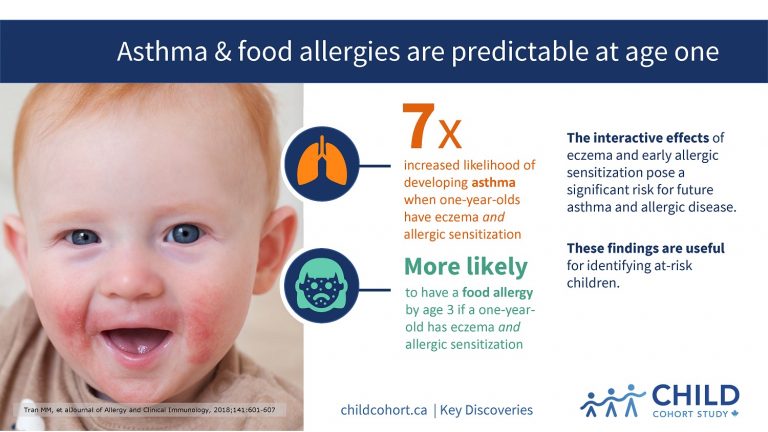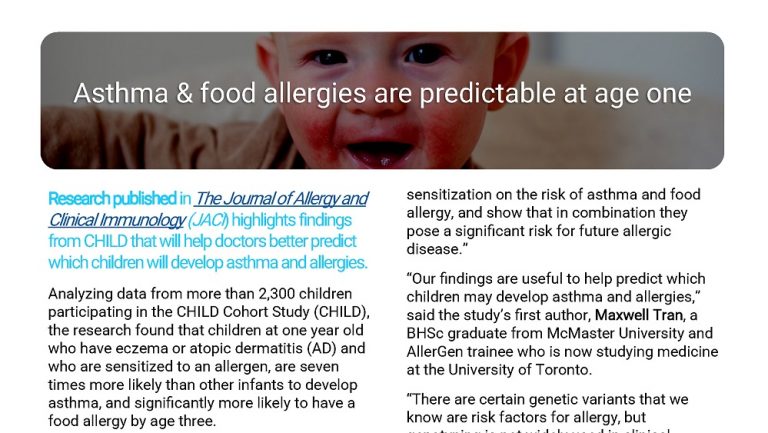Asthma & food allergies are predictable at age one
Research published in The Journal of Allergy and Clinical Immunology (JACI) highlights findings from CHILD that will help doctors better predict which children will develop asthma and allergies.
Analyzing data from more than 2,300 children participating in the CHILD Cohort Study (CHILD), the research found that children at one year old who have eczema or atopic dermatitis (AD) and who are sensitized to an allergen, are seven times more likely than other infants to develop asthma, and significantly more likely to have a food allergy by age three.
ECZEMA AND THE ‘ATOPIC MARCH’
It has long been known that infants with AD are more likely to develop asthma and allergic rhinitis in later childhood, a progression known as ‘the atopic march.’ But predicting precisely which children with AD will go on to develop these conditions has been difficult.
The CHILD researchers did find that having AD alone, without sensitization to an allergen, did not significantly increase children’s risk of developing asthma.
“Over the years, the clinical community has struggled to explain the atopic march,” said Dr. Malcolm Sears, Founding Director of CHILD.
“These findings help us to understand the interactive effects of AD and early allergic sensitization on the risk of asthma and food allergy, and show that in combination they pose a significant risk for future allergic disease.”
“Our findings are useful to help predict which children may develop asthma and allergies,” said the study’s first author, Maxwell Tran, a BHSc graduate from McMaster University and AllerGen trainee who is now studying medicine at the University of Toronto.
“There are certain genetic variants that we know are risk factors for allergy, but genotyping is not widely used in clinical practice, so this research offers healthcare professionals an alternative method of identifying at-risk children.”
The findings build on another CHILD finding, which showed that children who avoid cow’s milk products, egg, and peanut during the first year of life are at increased risk of allergic sensitization to these foods later on. Contrary to previous advice for parents to avoid feeding these foods to infants, it is now known that early introduction is beneficial in promoting tolerance and reducing the risk of food sensitization and food allergy.
“Much of what happens to us later in life is related to the exposures we encounter in early childhood,” said Sears.
The paper was highlighted in the December 2017 issue of JACI as an “Editor’s Choice” feature.





